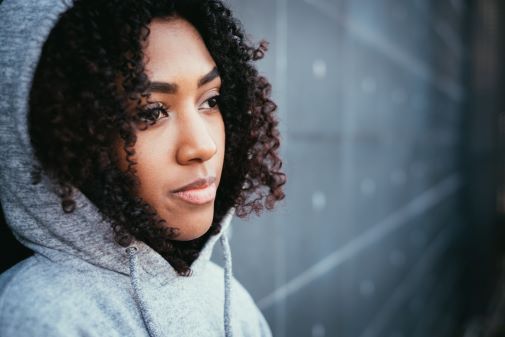Black and minoritised girls in the UK face higher extent of sexual harassment
A new report reveals the extent of public sexual harassment (PSH) experienced by Black and minoritised girls in the UK – with many saying it has impacted on their mental health, self-esteem and identity.
The report, written by researchers at the University of York and funded by global children’s charity Plan International UK, is believed to be the first report on this topic in the UK.
Researchers worked with 34 Black and minoritised girls and young women aged 16 – 21 to better understand how and where they experienced PSH.
Cultural change
The authors of the report say it is clear from the findings that there is a need for systemic and cultural change and the long overdue transformation of sex education and sexual harassment education for young people, teachers, and other authority figures.
Key findings from the report include:
Public sexual harassment included intimidating body language and staring; being followed or honked at in cars; receiving comments about their bodies or appearance; being groped, touched and sexually assaulted
Harassment was perpetrated in a range of places, including online and in schools, universities and public spaces
The harassment often hinged on their difference from the White or majority norm, in terms of appearance, attire, and body shape
Their bodies were commented on by strangers and peers and this was linked to an oversexualisation of Black girls and young women’s bodies in particular
The bodies of minoritised girls and young women who wore modest or religious clothing were also commented on, and in some cases, their religion or perceived ethnicity was used to insult or degrade them
Girls and young women spoke about how experiencing PSH had impacted on their mental health, self-esteem and identity. It particularly impacted on their body image
Previous surveys by Plan International have shown that 81% of young women and girls have experienced PSH outside in a public area, while 37% have experienced it on public transport.
Structural inequalities
The lead author of the report, Professor Vanita Sundaram from the University of York’s Department of Education, said: “All the girls and young women who took part in this research expressed a reluctance to report the public sexual harassment they had experienced to the police and other authorities – with structural inequalities clearly contributing to the obstacles that Black and minoritised girls and young women face when reporting.
“Whilst progress is being made, the findings from this report highlight that there is some way to go to address the widespread PSH that girls face in general, and in creating meaningful change for Black and minoritised girls and young women in particular.”
The authors of the report have come up with a number of recommendations, including:
Make public sexual harassment a criminal offence
Listen to the unique experiences of minoritised girls and young women
Invest in education on public sexual harassment for public officials, including teachers, lecturers, and the police
Improve reporting processes and systems for girls
Include communities as part of the solution
A bill to make public sexual harassment a criminal offence is currently going through the House of Commons.
Rose Caldwell, CEO of Plan International UK, said: “This report could not come at a more important time. Public sexual harassment is sadly experienced by the majority of women and girls, but this report highlights the ways in which mixed-race, Black and Asian girls are disproportionately likely to be subject to this harmful and threatening behaviour, and the specific barriers they face in reporting it.
“The powerful stories they shared reveal the damaging impact of public sexual harassment on their lives, leaving them feeling unsafe in public, in school, or even online.”
The report will be officially launched at an event at the University of York on Tuesday, 7 March with key stakeholders attending, including academics, activists and campaigners and representatives from Plan International UK.

